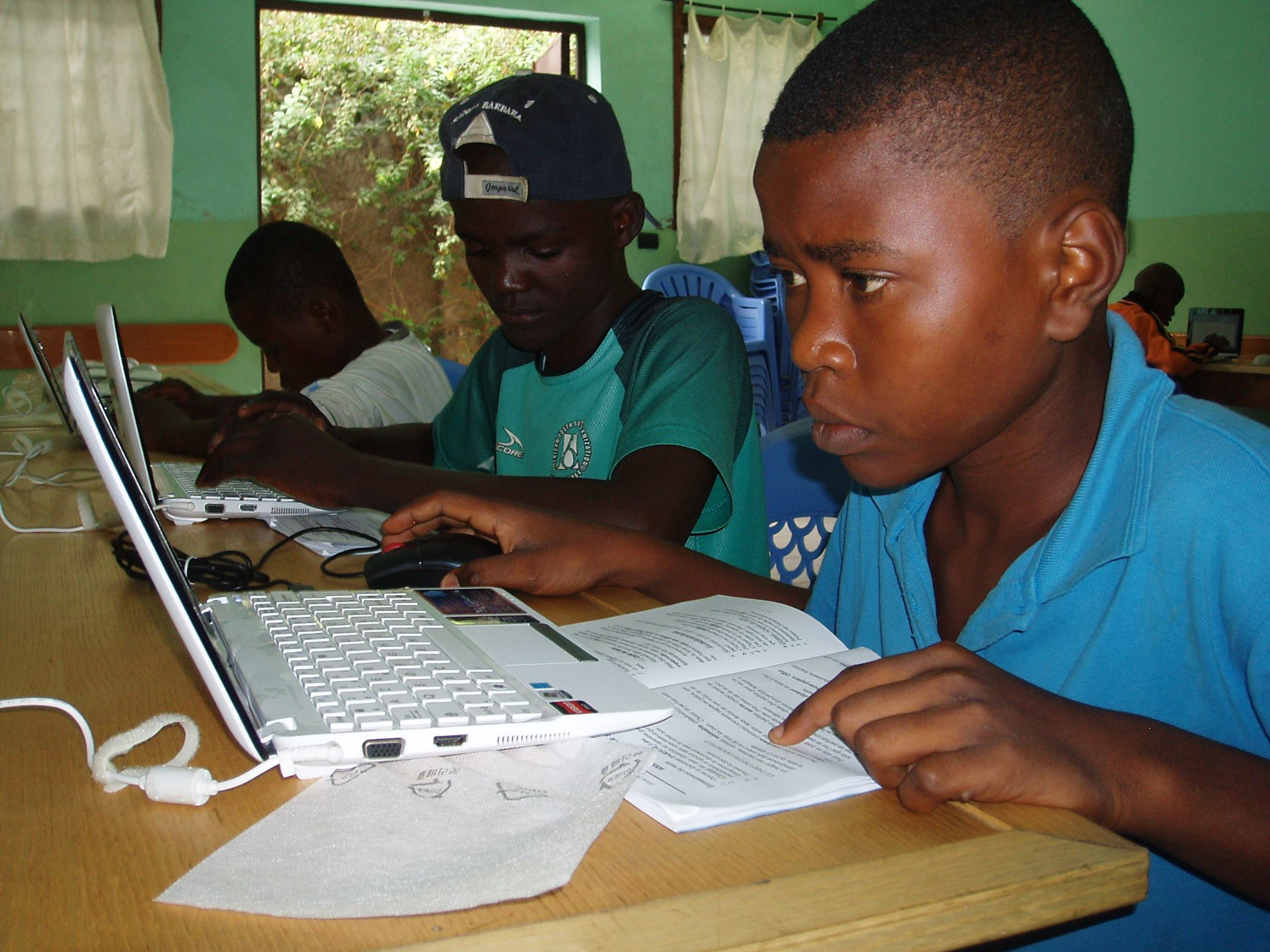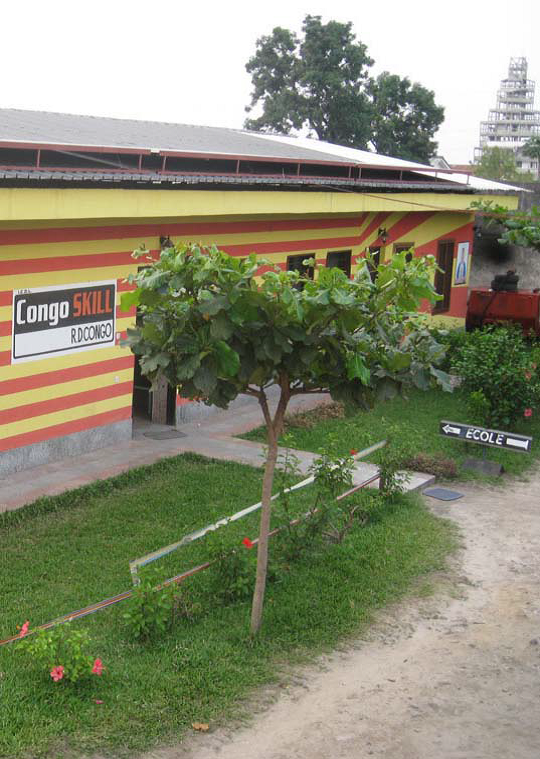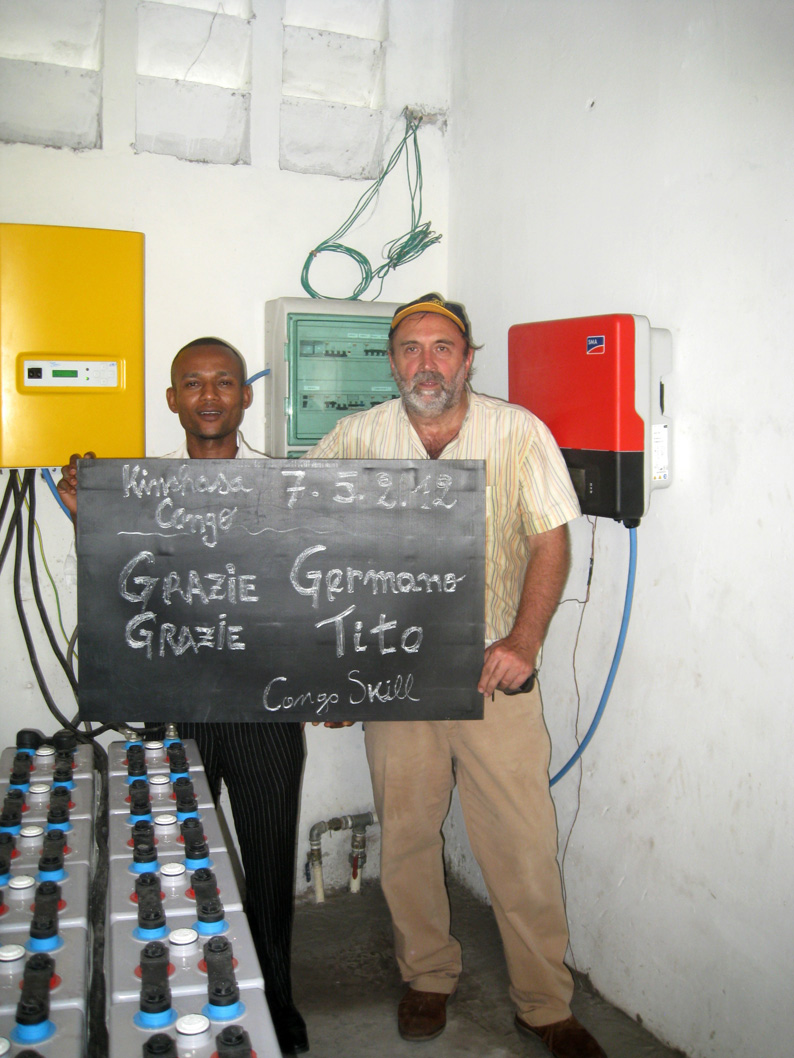DATABASE
Green Energy for Africa
completed
Country
Democratic Republic Of The Congo
Budget
0 - 500.000 $
Year
2011
Issue
Solutions
Link
www.forgreen.it
Abstract
The project Green Energy for Africa was born to provide the school in Kinshasa, DR Congo with access to electricity. The project demonstrated how solar power, with the support of innovative and sustainable technologies, can supply modern access to electricity for the activity of the school and the cooking facilities of the cyber café.
Project Description
The project Green Energy for Africa was realized in 2011 thanks to the partnership between the IT Professional School “Renzo Veronesi” (run by the “Congo Skill” program) and the company ForGreen Spa. The objectives of the project are: promoting the access to clean energy to foster the educational process and alphabetization of people living in the rural area; reducing the educational and cultural gap between urban and rural areas; creating a replicable model so to engage other cities in Africa in the process of alphabetization and education through renewable energy systems. The project demonstrated how the use of renewable energies and innovative technologies is a fundamental resource for the school and the local community. The technology employed consists in 18 stand-alone photovoltaic panels (4.14 kWp) and an energy storage system. The structure satisfies the energetic requirements of the social centre, allows students to take part to classes both in day and night time, use computers and access to internet. Furthermore, the system supplies energy to the cyber café, a social centre with cooking facilities and a restaurant activity available for students. The efficiency of the photovoltaic system can be safeguarded through a constant maintenance work. Therefore, an important part of the project consisted in training local people in maintaining the installed system, so to make them independent from external help for the energy supply.
BENEFICIARIES
The main beneficiaries are the students of the school “Renzo Veronesi”. Moreover, the school is provided with a cyber café which has become an important social and educational centre for the community, hence the benefits of the project are extended to the whole community.
Results
The direct result consists in the installation of 18 solar panels with a total power of 4.14 kWp and an annual production of 5423.40 kWh. The total consumption is 5610 kWh, the system supplies more than 80% of the energetic need required by the community and reduces the costs of management of the school. The indirect result consists in the development of local people’s skills for the maintenance of the installed system, growing the technological expertise of the whole community. The photovoltaic demonstrated to be the best solution to satisfy the energetic need of the local community and develop a strategy of growth of local people’s skills. The energy storage system and the photovoltaic installation allow to minimize the energetic costs of the structure and provide a continuous access to energy during day and night time. The project shows how a sustainable and responsible use of solar energy and innovative technologies can boost the lifestyle of local people and reduce inequalities.
Business Model
ForGreen’s business model consists in the realization of stand-alone solar system and energy storage kit for areas lacking electricity. The kit is designed to be replicable and adaptable to different environments. ForGreen is looking for investors for the model. The cost of this project was 17.000 €. Teaching the skills for the maintenance of the technological gear assures the active engagement of local people and the social sustainability of the project. The lifespan of the project is 15 years.
Lessons Learnt
The lesson consisted in understanding the installation of solar panels as a small step toward the full development of the local community. This experience helped us to imagine a broader concept of smart farm village, where solar energy needs to be coupled with other technologies and projects. Firstly, for the deployment of modern energy and cooking facilities there is the need to install a water pumping system. We imagined to develop this project through the installation of a micro- wind power technology. Secondly, for long term sustainability of the project there is the need to raise consciousness in local people about the potentiality of natural resources present in their environment.
Key Feature
The innovative aspect consists in providing a better access to education thanks to the use of clean energy. The project demonstrates how solar energy can improve the life of the community. The ownership of the project is safeguarded by teaching local people how to maintain solar panels, hence the whole community becomes independent from external help and can apply its knowledge for future projects. The project is easily replicable and scaled up by installing more solar panels in the village. Another characteristic of the project is the partnership created between the Combonian mission, who is present in the local community since 30 years, with the technological know-how of the company ForGreen. The partnership was fundamental for understanding the needs of the community, engaging actively local people in the project (thanks to the mediation of the Combonian mission) and keep the monitoring of the project thanks to constant communication between the two partners.
Other significant information
The project meets some of the Millennium Development Goals 2015 (MDG): it helps achieving universal primary education (MDG 1) and ensure environmental sustainability (MDG7) by promoting the access to green energy. The primary scope of the project is to improve the IT skills of the local youth through the activities run by the school, provide energy from renewable sources and make the structure of the school a point of reference for the whole rural community. Furthermore, the project permitted the creation of a cyber café, provided with a restaurant, canteen facilities and modern kitchen equipment. The project was realized with attention to energy efficiency and sustainable consumption. The project achieved indirect results as the social aggregation generated by the cyber café resulted to be a fundamental point of reference for the community. Finally, supplying energy to the school decreased educational inequality between the rural and urban area of DR Congo.
Main Donor
ForGreen Spa
(Private sector)
Implementing Actor
ForGreen Spa (Private sector)



